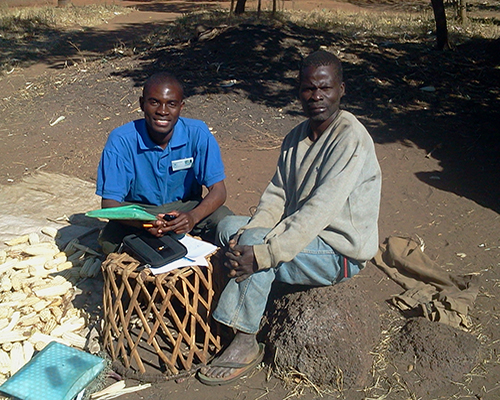Impact Evaluation of USAID’s Community-Based Forest Management Program in Zambia
Global Development

In Zambia, The Cloudburst Group is designing and implementing a Difference-in-Difference impact evaluation of the USAID/Zambia-funded Community-based Forest Management Program (CFP). The CFP program is creating the largest REDD+ program in Zambia with goals of improving livelihoods, generating income, reducing poverty and increasing the number of hectares of forestland under improved management in Zambia’s Muchinga and Eastern Provinces. The CFP impact evaluation seeks to understand how REDD+ programs impact land tenure and property rights in forested areas, how tenure affects related livelihoods and benefit sharing, and which aspects of REDD+ programming are most effective in incentivizing long-term carbon sequestration and reducing greenhouse gas emissions from forests and landscapes.
Some of the impact evaluation research questions include: how (if at all) does a REDD+ project lead to changes in individual and communal property rights; how does a REDD+ project affect local governance and decision making related to resource use; do parties with stronger property rights benefit more from a REDD+ project, and conversely, do parties with weaker property rights benefit less from a REDD+ project?
The Cloudburst Group has developed data collection instruments including: a large-N household survey (+4,000 household), village headperson survey, intra-household wives survey, forest key informant survey, chief and key informant interviews, as well as focus group discussions and participatory mapping exercises. All instruments underwent extensive USAID review and external peer review. We are working with a local data collection firm to train enumerators and qualitative researchers to electronically gather data (using Open Data Kit) and comply with human subjects’ research requirements. Qualitative data will help build a richer social context in which to situate the quantitative material and allow for more nuanced descriptions of the impact evaluation data.
